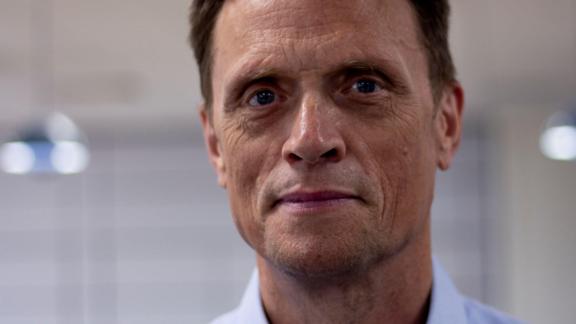Dilemmas

When finding and developing a systems approach to improvement, that approach needs to feel relevant to the most pressing and difficult issues leaders face, writes Matthew Taylor.
A few years ago, in fact on the morning of the day I was interviewed for the CEO job here at NHS Confederation, I gave a talk on leadership to a group of HR directors from large, commercial, organisations. At one stage, I asked the 50-or-so attendees whether they had recently had a conversation with their staff about ‘purpose’. I wasn’t surprised when the majority indicated that they had. The tendency towards corporate soul-searching had been accelerated by the impact of the pandemic. But my next question was more challenging. I asked them what kind of dilemmas had come to the surface as a result of their exploration. No one had an answer. To which my rather brusque response was:
‘I don’t know what you’ve been discussing, but if it hasn’t identified any dilemmas, it really wasn’t purpose.’
How could a company required by the market to maximise profitability, but also committed to social responsibility, not face difficult choices? How could leaders beholden to shareholders, but also with responsibilities to their staff, not have to deal with hard trade-offs?
Wicked problems
Leaders have a predisposition to play down what have been described as ‘wicked problems’; those that have no simple solution and which involve balancing competing priorities and interests. As if it is a sign of weakness, or perhaps risks confusing or demoralising the troops. Yet, surely, it is confronting these issues that comprises the core work of leadership.
I have been thinking about this in the context of the Confederation’s development of an improvement offer focused on systems and places. We’ve been doing this with our partners at the Health Foundation and in Q - a community of thousands collaborating to improve health and care quality and safety. Together we have commissioned Sir Chris Ham to write a report on system improvement, which we are discussing with system leaders and intend to publish later this month. Our intention is to work with systems in helping them translate and shape their improvement work in ways that can also reflect the context of the NHS IMPACT approach promoted by NHS England.
… more often we need approaches that are capable of navigating our difficult trade-offs and dilemmas
We will be bringing a range of methods into this work, so that leaders have access to the leading-edge take on how to improve that’s relevant to their work. Sometimes we need improvement methods that support progress towards known best practice in a relatively linear way. Once you get to improvement in the complex environment of change that requires inter-organisational, multi-stakeholder system leadership, more often we need approaches that are capable of navigating our difficult trade-offs and dilemmas.
Challenges and dilemmas
In a complex environment of trusts, collaboratives, places, neighbourhoods and agencies, what is the system’s value-added proposition and how does it focus its energies on the difference it can make? Especially when a tragic irony of the NHS is that two of our biggest problems are a lack of capacity and a tendency for different levels to duplicate their energies.
How … do system leaders achieve a synergy between challenge and support
How, in their dealings with providers, do system leaders achieve a synergy between challenge and support, primarily seeking change through partnership and enabling while acknowledging that elements of oversight and occasional recourse to performance intervention are inevitable, not least because of the expectation that comes from the centre and regions?
Learning from examples like Northamptonshire and Norwich, how do leaders negotiate and deepen collaboration with partners outside the health service (principally local government)? Partners that face their own pressures and have their own accountabilities?
How do leaders meet the pressing demands of today (because if they don’t they risk becoming irrelevant and discredited) in a way which aligns with a longer-term vision of system change (because if they don’t they will never move beyond crisis-managing the demand capacity gap)?
… if we draw on the full range of what’s available… both the tools and mindset of improvement can be of great value
These may feel like broad and complex challenges, but, if we draw on the full range of what’s available, we at the Confederation believe that both the tools and mindset of improvement can be of great value. If improvement isn’t to become just another item on the to-do list, we need to select from and tailor what’s available to be relevant to the most important issues with which systems are grappling. The Health Foundation’s upcoming report on the improvement landscape points to different modes of improvement and a wealth of experience in the health sector that we can help connect to the priorities of local systems.
A final point about acknowledging dilemmas: there is always a tendency for people closer to the front line to feel that those in HQ, with their continuous exhortations to do better, fail to appreciate the messy, difficult reality they face every day. But right now, particularly in the face of the growing financial crisis in systems and trusts, that sense of disconnect feels particularly pronounced. For those at the centre to more fully acknowledge the inherent, and arguably increasingly difficult, dilemmas of system and trust leadership would help to close the empathy gap. But even more powerful would be for those at the top to trust us with their own wicked issues and get involved in our partnership.
Matthew Taylor is chief executive of the NHS Confederation. You can follow Matthew on X, formerly Twitter, @ConfedMatthew
Find out more about our partnership with the Health Foundation and Q community



